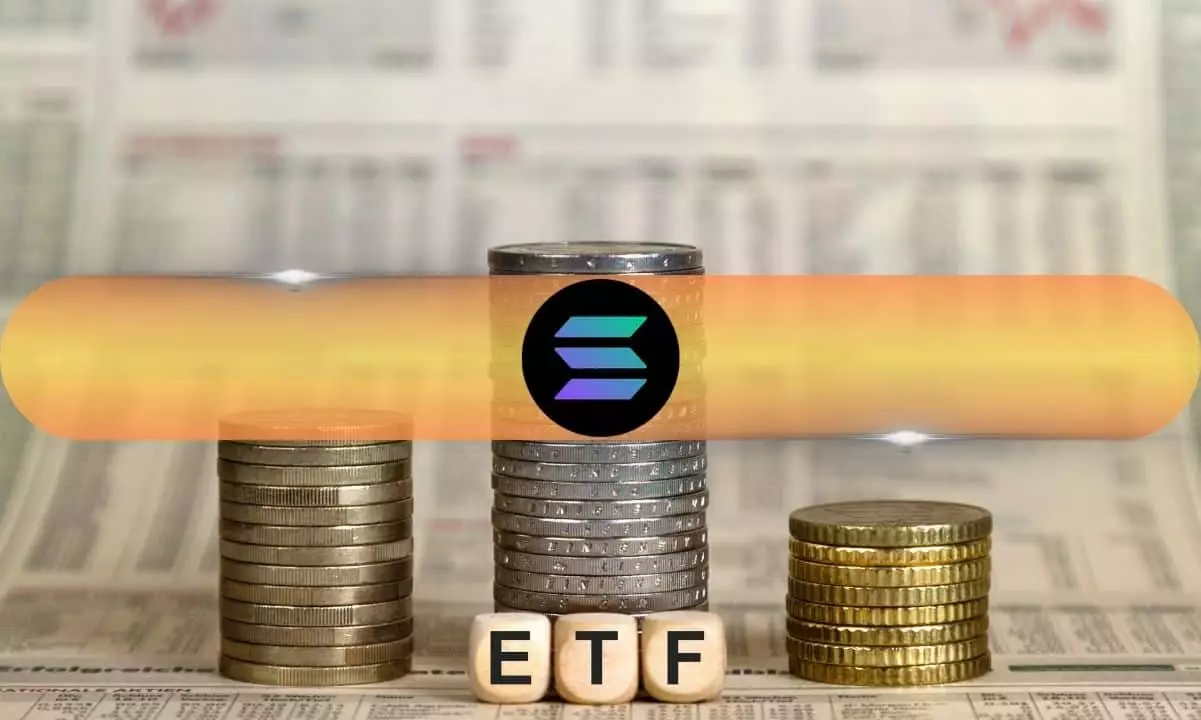The crypto market is on the verge of transformation with a new wave of potential exchange-traded fund (ETF) offerings, specifically targeting prominent digital currencies such as Ripple (XRP), Solana (SOL), and Cardano (ADA). Industry analysts, particularly Nate Geraci, president of the ETF Store, have suggested that changes in the political atmosphere, particularly following recent U.S. elections, may lead to an increase in filings for spot crypto ETFs. With pro-crypto sentiment appearing to gain momentum, this shift could mark a crucial turning point for cryptocurrencies as they increasingly enter mainstream financial conversations.
Political Influence on Regulatory Outcomes
Geraci’s insights underscore how political events can dictate regulatory landscapes. The recent election outcome, which saw Donald Trump return to the presidency, is seen as a significant factor in shaping policy towards cryptocurrencies. With a GOP-led Congress leaning toward pro-crypto initiatives, many anticipate a more favorable environment for ETF applications. In Geraci’s words, “No downside to getting aggressive now,” reveals the urgency within the industry to capitalize on what could be a window of opportunity for enthusiastic crypto funding and innovation.
The support for crypto-backed financial products has been solidified by the success of existing spot Bitcoin ETFs, which have amassed over one million BTC, accounting for 4.9% of the asset’s total supply. This growing trust in the market indicates a robust appetite for diverse cryptocurrency offerings among investors. The influx of both institutional and retail investors into Bitcoin ETFs signals a maturation of the crypto market, possibly paving the way for similar products focused on alternative cryptocurrencies like SOL, XRP, and ADA.
Recent surges in the prices of Cardano and Solana—up 83% and 32%, respectively—have further heightened interest in these assets. The Chicago Board Options Exchange (CBOE) has responded by initiating applications for new Solana-centric ETFs, backing their potential with considerable market activity. The timing for these applications coincides with pivotal deadlines, such as mid-March 2025, prompting urgency among issuers to act quickly in a landscape characterized by rapid changes.
As the crypto ETF landscape evolves, analysts will be closely monitoring the regulatory approach under SEC Chair Gary Gensler. With speculations suggesting that he may exit his position, the future leadership of the SEC could significantly impact the approval process for new crypto ETFs. Republican Commissioner Mark Uyeda’s call for a more lenient stance toward cryptocurrencies adds additional weight to the anticipation surrounding upcoming proposals. The possibility of new XRP, SOL, and ADA ETFs may not only stir investor interest but could also reshape perceptions of cryptocurrency legitimacy beyond Bitcoin and Ethereum.
The confluence of political change and growing institutional interest presents a tantalizing opportunity for the cryptocurrency market. Should Geraci’s prediction about increased ETF filings materialize, it could further invigorate the digital assets market, potentially leading to a more inclusive and expansive landscape. As the crypto sphere ventures into this new chapter, the focus remains on regulatory clarity and the embrace of financial innovation to sustain momentum and foster growth. The coming months will undoubtedly be critical in determining how these dynamics unfold.

